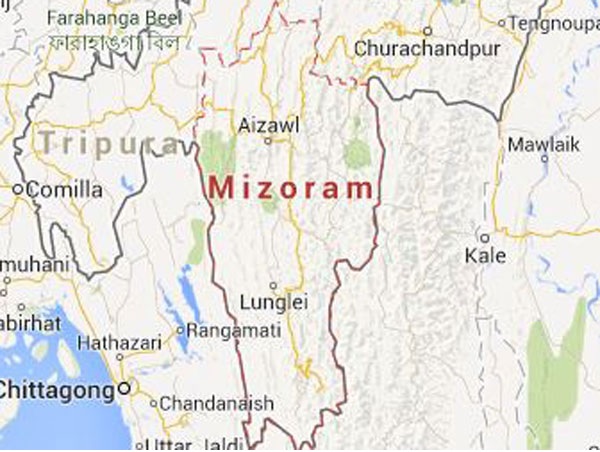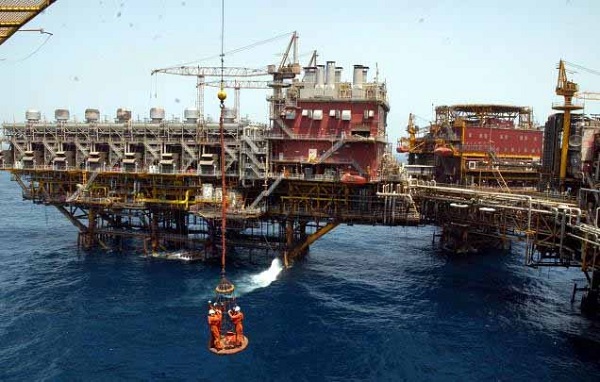
by Editor | May 25, 2021 | Economy, News
 Aizawl/Agartala : (IANS) State-run Oil and Natural Gas Corporation (ONGC) has struck gas in northern Mizoram and is continuing prospecting for more hydrocarbons, a minister said on Thursday.
Aizawl/Agartala : (IANS) State-run Oil and Natural Gas Corporation (ONGC) has struck gas in northern Mizoram and is continuing prospecting for more hydrocarbons, a minister said on Thursday.
“The ONGC has for the first time found gas in Assam-Mizoram bordering areas under Kolasib district,” Mizoram’s Industries Minister H. Rohluna told the assembly in Aizawl.
“The ONGC is now conducting tests on the gas found. The company has continued its drilling and hydro-fracturing to find out whether more deposits of hydrocarbons are available in the area,” Rohluna said.
The company’s Jorhat basin has been doing exploratory drilling in Kolasib district in northern Mizoram.
ONGC has already found large reserves of natural gas in Assam and Tripura, a company spokesperson said.
Oil India Ltd, another company owned by the central government, has also found gas in Assam and Arunachal Pradesh.
ONGC, which has been present in Tripura since 1972, has so far drilled about 206 wells in the state half of which are gas bearing.
The ONGC spokesperson said the company has undertaken a Rs.5,050 crore ambitious plan to prospect for more gas in Tripura.
ONGC has also commissioned its first mega commercial power project in the state, run by the ONGC Tripura Power Company (OTPC).
The Rs.10,000 crore 726 MW capacity gas-based thermal power project (using both water and natural gas) at Palatana, 60 km from here, is ONGC’s first commercial power project in India.
ONGC, in association with Chambal Fertilisers and Chemicals Ltd and the Tripura government, would also set up a Rs.5,000 crore fertiliser plant in northern Tripura.
“The process is on to set up the fertiliser plant,” said another ONGC official.

by Editor | May 25, 2021 | Muslim World
 Tehran : (IANS) Iran on Thursday signed a confidential oil agreement with France’s Total to develope the South Azadegan oil field shared by Iran and Iraq, Iran’s Oil Minister Bijan Namdar Zangeneh said.
Tehran : (IANS) Iran on Thursday signed a confidential oil agreement with France’s Total to develope the South Azadegan oil field shared by Iran and Iraq, Iran’s Oil Minister Bijan Namdar Zangeneh said.
Iran and the oil giant, Total, have agreed to keep the articles of the accord confidential, and the French firm is now “studying its participation in the development of the oil field,” Zangeneh was quoted as saying by Press TV.
Earlier this month, Zangeneh said that Iran and Total were in talks about the oil field, which is said to hold an in-situ oil reserve of about 33.2 billion barrels, according to the report.
Iran reached an agreement with the Japanese Inpex a decade ago to develop the oil field, however, the Japanese company quit the project as a result of U.S. sanctions against Iran’s energy sector because of the disputed nuclear issue.
Iran and the world powers clinched a nuclear deal in July last year which enables the country to re-engage with the world’s energy giants to develop its oil and gas fields.

by Editor | May 25, 2021 | Corporate, Corporate Buzz
 Bengaluru:(IANS) India’s import dependence on oil is likely to touch 90 percent by 2020 due to widening supply-demand gap on growing appetite for the fossil fuel, a joint study said on Friday.
Bengaluru:(IANS) India’s import dependence on oil is likely to touch 90 percent by 2020 due to widening supply-demand gap on growing appetite for the fossil fuel, a joint study said on Friday.
If the trend of importing more oil continues, India’s dependence is likely to reach 90 percent by 2020 from 79 percent last fiscal (2014-15) on widening supply-demand gap, accentuated by growing appetite for fossil fuels, said the report titled “Let’s energise — Meeting India’s growing fuel demand” by India-Tech Foundation and Pricewaters Cooperhouse Ltd (PwC).
Noting that the country had to diversify its energy basket through use of alternative fuels, the report said otherwise higher percentage of GDP (gross domestic product) would have to be spent on imports, increasing vulnerability to price shocks.
“Though we imported 79-80 percent of our oil needs, spending $138 billion last fiscal (2014-15), dependence on overseas suppliers will continue due to limited domestic production,” said Deepak Mahurkar, PwC India leader for oil and gas.
Admitting that the country’s economy could not be insulated against external shocks, the report, however, said their impact could be limited by boosting domestic production, increasing use of alternative fuels and reducing oil imports.
Dwelling on the impact of oil on the economy and its significance in the country’s coal-dominant energy basket, the report said as major oil suppliers were in the unstable regions of West Asian and North Africa, the nation faces host of risks ranging from geopolitics to volatile price.
“As boosting domestic production has limitations, we should focus on diversifying into alternative fuels like coal bed methane, hydrogen, shale gas and ethanol blended fuel,” Mahurkar said.
The report also favoured shoring up oil reserves by encouraging state-run and private Indian oil firms to scout for potential reserves overseas.
“As oil is a traded commodity, equity oil offsets the impact of stagnant domestic production and acts as a hedge against fuel prices. Sharp fall in global oil prices (from $110 in June 2014 to $40 per barrel) is a good opportunity to acquire oil assets overseas,” India-Tech Foundation president Indra Mohan added.

 Aizawl/Agartala : (IANS) State-run Oil and Natural Gas Corporation (ONGC) has struck gas in northern Mizoram and is continuing prospecting for more hydrocarbons, a minister said on Thursday.
Aizawl/Agartala : (IANS) State-run Oil and Natural Gas Corporation (ONGC) has struck gas in northern Mizoram and is continuing prospecting for more hydrocarbons, a minister said on Thursday.

